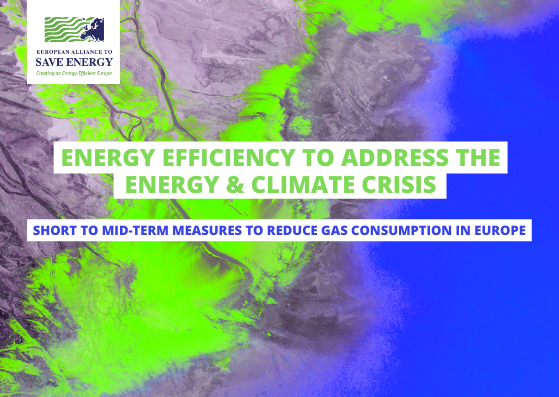The European Union is set to reduce fossil gas imports from Russia by 2/3 by the end of 2022 and to become independent from all Russian fossil fuels well before 2030. This paper summarises the outstanding contributions that energy efficiency can play in the short to mid-term to greatly reduce Europe’s reliance on fossil fuels.
The Russian invasion of Ukraine has exacerbated the energy price crisis which is negatively affecting European citizens and businesses, threatening Europe’s energy security. The over-reliance on fossil fuels and the most recent IPCC report issued in April 2022 are a wakeup call that energy efficiency has never been more necessary. There is tremendous potential for reducing energy demand and optimise consumption across sectors, including buildings, industry, water utilities and transport. What matters most is that these energy savings can be realised with existing technologies and solutions made in Europe.
This paper is a non-exhaustive catalogue of short and mid-term actions to invite policymakers at EU, national and local level to apply the Energy Efficiency First principle and prioritise active and passive energy saving measures that can deliver simultaneously short-term benefits to alleviate the energy price crisis and longer term, systemic changes to tackle the devastating impact of climate change.
Read the full catalogue of measures here

